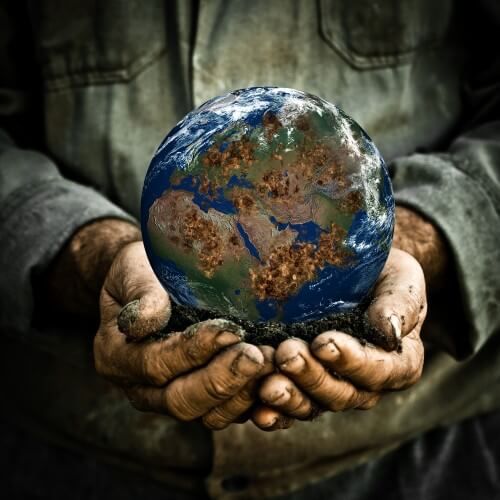This is what the Food and Agriculture Organization of the United Nations warns ahead of a conference of agriculture ministers from the countries of the Middle East and North Africa. Israel does not participate for some reason

The United Nations Food and Agriculture Organization (FAO) warns that "in the countries of North Africa and the Eastern Mediterranean, the lack of water is the most urgent immediate problem, and this may harm nutritional security. The lack of water is expected to increase by 50% In the next thirty years."
The warning is being distributed ahead of a gathering of ministers of agriculture from the countries of the region. Among the other issues that will be discussed at the regional gathering, the lack of water will be a main issue, as the organization plans to support the countries in identifying methods of action and policies that will provide (sustainable) solutions to the problem of lack of water, from which also arises the problem of lack of food.
The spokesperson of the organization clarifies that: "Although correct actions have been taken in the last two decades, such as developing and improving the use of water and increasing reservoirs, there is still a lot of work to improve the efficiency of the agricultural use of water and maintaining the quality of water, while taking into account the difficulties that arise due to the climatic changes."
According to the organization's report, in the last forty years the amount of water available to users has decreased by two-thirds, and as a result, and due to climate change, the quality of the water is decreasing.
Added to this is the "explosion" of the population which adds urgency to the need to solve the problem. According to a report from the years 2010-2013, it is estimated that in many regions malnutrition prevails among 11% of the population and at the same time there is an increase in the population by 2% (double the world average).
Agricultural activity consumes more than 85% of the available water (including: reservoirs and surface sources such as lakes and rivers, rain and groundwater). At the same time, the demand for agricultural products is increasing among the urban population as well as for export needs.
The spokesperson of the organization says that: "Since agriculture is the largest consumer of water, efficient and economical use in agriculture will be the main reason for the lack in the countries of the Middle East and North Africa." Agriculture constitutes a value of about 95 billion dollars in the regional economy.'
The theme of the conference will be: "Enhancing food security in the region", and it will be the first in a series of conferences that the organization will hold in 2014 in different parts of the world. Other issues that will be discussed will be: waste and loss of food along the production "lines", increasing gender equality and improving development in rural areas.
The participants are supposed to propose lines of action in designated areas such as improving the participation of the central government and professional institutes, and especially streamlining the use of water. All this regardless of political borders. According to the organization, more than 60% of the water sources used by countries cross political and regional borders, with a large part of the water arriving outside the borders of the users, (such as the Jordan and the Yarmouch in our country).
In June 2013, an experimental meeting was held on the topic of "Lack of Water in the Region" (Regional Water Scarcity Initiative) in which a survey of the current situation, availability, management and future use options was presented.
Also, there was an attempt to identify and rank the possibilities and conditions for the future supply of food by combining governments and industrial bodies. The meeting was attended by: Egypt, Jordan, Morocco, Oman, Tunisia and Yemen.
I have not seen anywhere a reference to "Friends of the Country in the Middle East" (FOEME), which is the most significant cross-border environmental organization in our region, and of course there is no reference to Israel, which in recent years has become an exporter of water to its thirsty neighbors.

4 תגובות
Adam Red
The United Nations Health Organization is a body that gave the reproduction rates in the world for decades to come. I'm sure those who wrote the study are aware of the studies they themselves wrote...
The world war between the Sunnis and the Shiites that is taking place in full force in Syria, Iraq, parts of Lebanon, as well as wars between Sunnis among themselves (Libya, Yemen), at the current rates, will further reduce the amount of population in the Middle East..., so a working assumption of population growth of 2% In a year she has nothing to base herself on. And now seriously, there has been a dramatic decrease in the number of live births for women throughout the Gaza Strip, in the last ten years. Demographic trends have changed - Arab women today want fewer children, as a result of the increase in the proportion of educated women in the population and urbanization processes in most Arab countries. In my opinion, the researchers are not aware of this trend and therefore the working assumption of an annual growth of 2% was correct in the past but is no longer correct today and the rate is definitely lower.
Our new formula for Arabs maybe? Hello for water? 🙂
"Israel is not participating for some reason" - there is a boycott, have you forgotten?
Those who confiscate are confiscated.